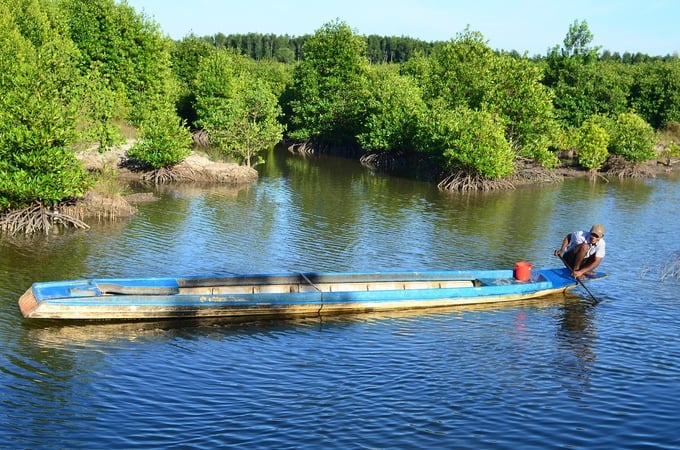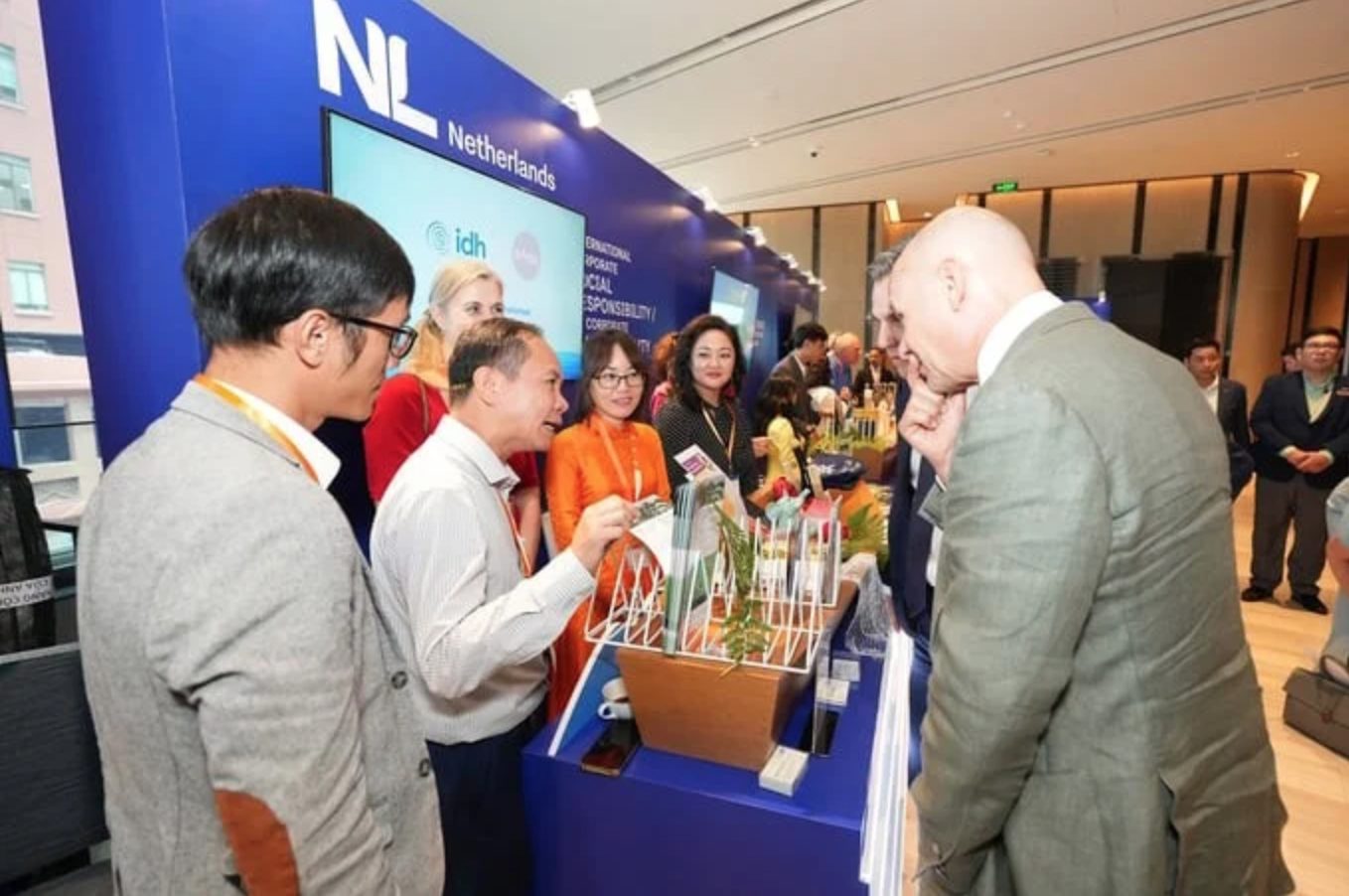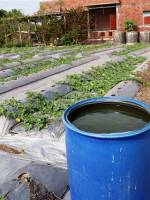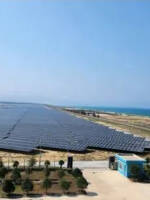
The Mekong Delta region, with an exclusive economic zone and a condition of interfering saltwater, brackish water, and freshwater, has created a particular ecoregion that is rarely seen in the world and is extremely favorable for the development of seafood production.
According to Decision No. 3550/QD-BNN-TT dated August 12, 2021 of the Ministry of Agriculture and Rural Development on the “Sustainable Aquaculture Development Plan in the Mekong Delta,” by 2030, the entire Mekong Delta region strives to reach an aquaculture area of over 990,000 ha, in which brackish water shrimp of 720,000 ha, pangasius of 7,447 ha, giant freshwater prawn of 50,000 ha, and an aquaculture output of over 4,800,000 tons.
However, according to experts, the Mekong Delta region has a lot of potential to restructure high-value natural shrimp production and supply chains. Strengthening linkage and cooperation between farmer households, cooperative groups, cooperatives, businesses, and local governments helps create branded product lines of organic shrimp and ecological shrimp in the Mekong Delta region. In addition, meeting requirements on traceability or reducing “carbon footprint” is also one of the solutions for the shrimp industry to develop sustainably in the future, meet the conditions of the domestic supply and consumption chain, and export to many demanding markets.
Especially when Vietnam participates in international commitments on climate change, such as committing to zero net emissions by 2050 and reducing methane emissions by 30% compared to 2020, reducing “carbon footprint” of the shrimp industry is a solution to improve export value, aiming for sustainable and responsible development.
In order to provide solutions to support Vietnam in developing the Mekong Delta region, on March 21, the event “Vietnam-Netherlands: Mekong Delta Business Forum” took place, attracting over 300 domestic and international delegates. Of these, Dutch experts and businesses have proposed many solutions to help develop the supply chain in the seafood industry in the Mekong Delta.
On March 19, Minister of Agriculture and Rural Development Le Minh Hoan had a working session with Minister of Nature and Nitrogen Policy (Dutch Ministry of Agriculture, Nature, and Food Quality) Christianne van der Wal on solutions to turn the Mekong Delta into a center in the region while still ensuring issues on ecology, biodiversity, and environment.
On the sidelines of the event, Mr. Nguyen Ba Thong, Aquaculture Program Manager of IDH Vietnam, shared about initiatives aimed at reducing carbon emissions from the shrimp and pangasius supply chains in the Mekong Delta, as well as proposals for potential cooperation opportunities between the two countries.
According to Mr. Nguyen Ba Thong, Vietnam is one of the world’s largest seafood producers (ranking 1st in pangasius and giant tiger prawn production; 3rd in seafood export; 4th in aquaculture production). Vietnam is also the second-largest seafood supplier in Europe, of which the Netherlands is the largest European importing market for Vietnamese seafood. However, Vietnamese aquaculture farmers currently do not receive incentives to produce in a beneficial, environmentally friendly way.

In Vietnam, supply chain linkage is a key factor in achieving feasible interventions for agents in the chain to change their production and business practices.
The Sustainable Trade Initiative (IDH) organization cooperates with partners to develop a path to reduce environmental emissions and a Life Cycle Assessment (LCA) tool to calculate the environmental footprint of aquaculture products from input to retail link.
On that basis, the supply chain can identify important hotspots of the environmental footprint, thereby implementing feasible intervention measures and promoting the establishment of partnerships between relevant parties.
Currently, global aquaculture product supply chains are seeking ways to reduce environmental impacts and emissions, and IDH is promoting cooperation and supporting them in this transformation.
In Vietnam, IDH prioritizes supporting the reduction of environmental emissions for shrimp and pangasius supply chains in the Mekong Delta.
“Hotspots of environmental emissions in the aquaculture chain with the highest-level negative environmental impact can now be identified by the Life Cycle Assessment (LCA) tool, providing the basis for developing priority impacts to reduce emissions for the entire chain.
By jointly resolving this issue across the supply chain, we can not only minimize our impacts on the environment but also support the resilience and adaptation of aquaculture farmers to climate change,” shared Mr. Nguyen Ba Thong, Aquaculture Program Manager of IDH Vietnam.
Currently, many Mekong Delta provinces, such as Ca Mau, Kien Giang, Ben Tre, etc., have many small and medium-scale business establishments and cooperatives with nature-based shrimp farming areas, producing shrimp-forest, shrimp-rice, and clean shrimp products. However, these products have not been centrally managed and certified with appropriate quality values.
Ca Mau has over 80,000 ha of mangrove forests, including 30,000 ha of shrimp farming under the forest canopy, but only 14,000 ha are certified for ecological shrimp farming.
Nguyen Thuy – Translated by Huyen Vu Thu




